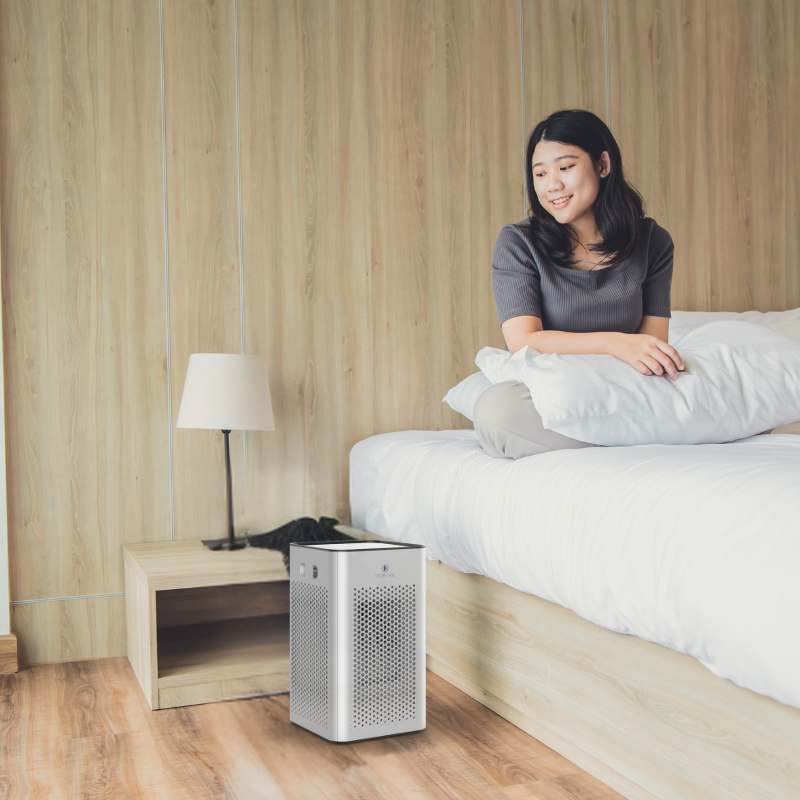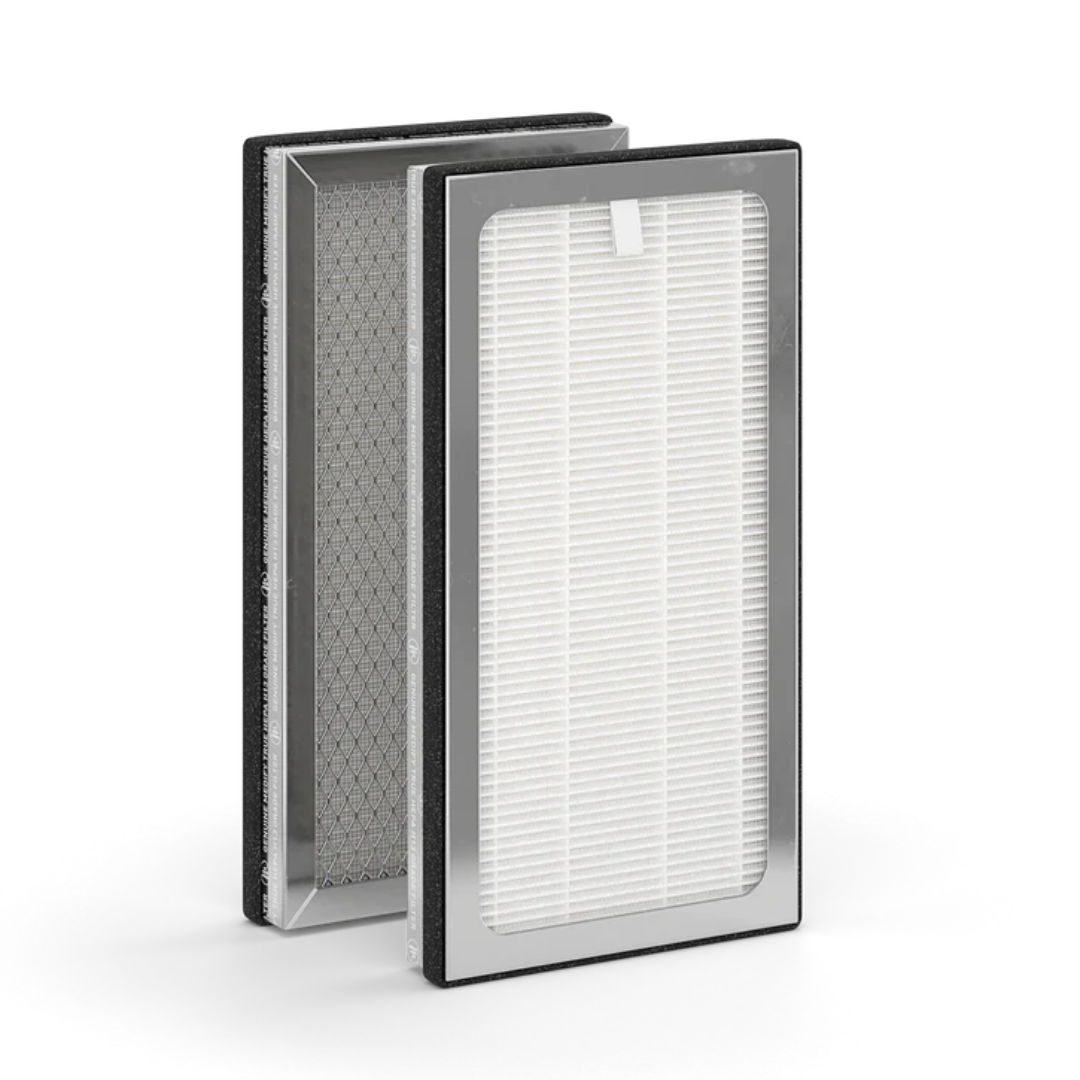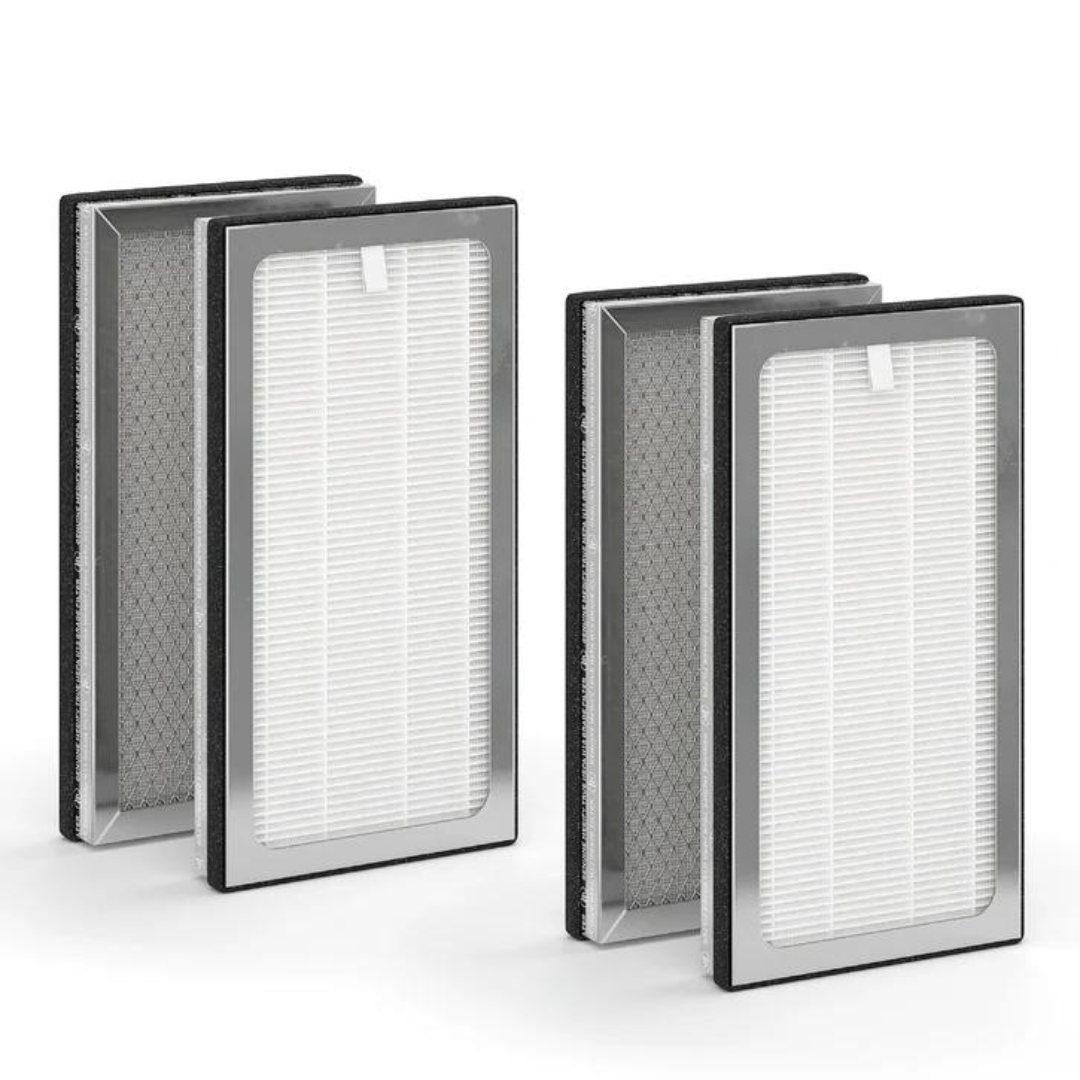Poor air quality in the bedroom can significantly impact sleep quality and overall health. Pollutants such as dust, mould, pet dander, and volatile organic compounds (VOCs) can exacerbate allergies and respiratory issues, making it crucial to invest in a good air purifier.
Key Features to Consider
HEPA Filter: A high-efficiency particulate air (HEPA) filter is essential for capturing over 99.9% of airborne particles, including dust, pollen, mould spores, and pet dander. Look for purifiers labelled as True HEPA or medical-grade HEPA to ensure maximum efficiency.
Sleep Mode: Opt for an air purifier with a dedicated sleep mode, which reduces noise levels and dims display lights. This feature ensures that the purifier operates quietly and without disrupting sleep.
Room Capacity: Choose an air purifier that matches the size of your bedroom. Check the Clean Air Delivery Rate (CADR) ratings to determine its effectiveness in rooms of your specific size.
Certification: Look for certifications from recognised organizations. These certifications ensure that the purifier has been tested and proven effective in reducing allergens.
Size and Design: Consider the size and design of the air purifier to ensure it fits seamlessly into your bedroom without taking up too much space. Compact and aesthetically pleasing models are often preferred.
Benefits of Using a Bedroom Air Purifier
Extended Time Spent in the Bedroom: Since people spend a significant portion of their time sleeping, maintaining clean air in the bedroom can have a substantial impact on overall health.
Reduction of Allergens and VOCs: Bedrooms often contain high levels of allergens and VOCs from various sources such as bedding, furniture, and cleaning products. An air purifier can help reduce these pollutants, minimizing allergic reactions and respiratory problems.
Odour Removal: Air purifiers equipped with activated carbon filters can effectively remove odours from old furniture, humidity, smoke, and pets, ensuring a fresh and pleasant environment.
Snoring Reduction: By reducing allergens and improving air quality, air purifiers can help alleviate nasal congestion, which may contribute to reduced snoring and improved sleep quality.



